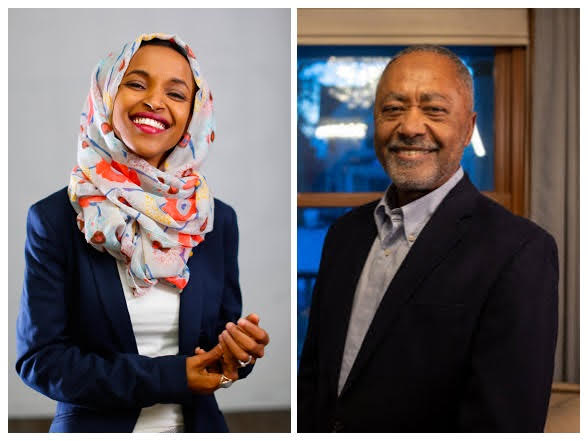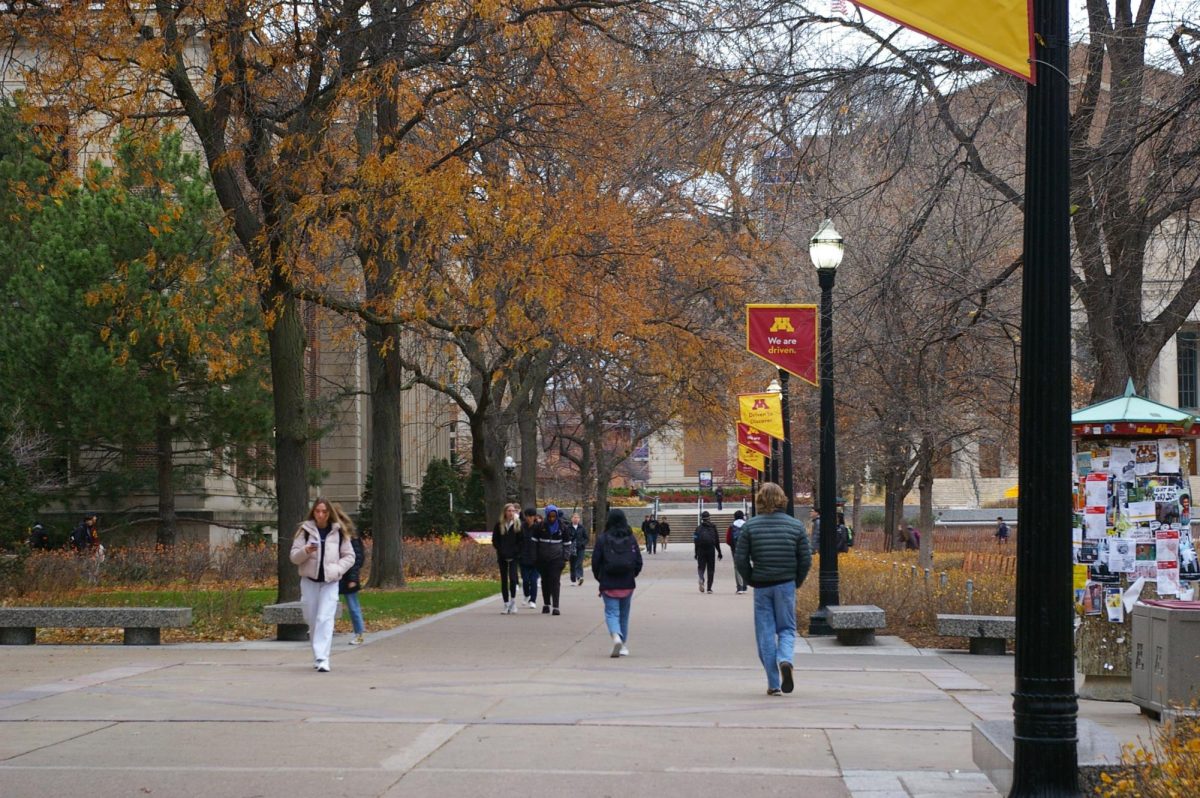The Minnesota Daily asked two of the top candidates running for the DFL nomination for Minnesota’s 5th Congressional District race about their reasons for running and plans for office ahead of the Aug. 9 primary election.
Eight candidates are running this year, three Republicans and five Democrats. As a strong Democratic district, having not elected a Republican since the ‘60s, the most hotly contested race is between DFL candidates Ilhan Omar and Don Samuels.
Omar, the incumbent representative for the district answered questions via email. She has been the U.S. representative for District 5 since 2019 and has garnered national attention for her progressive views and sometimes controversial rhetoric.
Omar has been endorsed by the DFL as well as elected officials like District 60B State Rep. Mohamud Noor, State Attorney General Keith Ellison and Speaker of the U.S. House of Representatives Nancy Pelosi.
Samuels was a Minneapolis council member for 11 years and is now running as a more moderate alternative to Omar. He was endorsed by Minneapolis Mayor Jacob Frey, Minneapolis Ward 3 Council Member Michael Rainville and retired Minneapolis Police Chief Medaria Arradondo.
Democratic candidates Albert Ross, Nate Schluter and AJ Kern along with Republican candidates Cicely Davis, Guy Gaskin and Royce White did not respond to requests for comment.
Primary elections are Aug. 9, with polls open between 7 a.m. and 8 p.m. Information about polling place locations and voter registration is available on the Secretary of State website.
What makes you the strongest candidate?
Omar: “Serving the 5th District in Congress has been the honor of my life. We’ve made so much progress through our MEALS Act, legislation that fed millions of children throughout the pandemic, we were also able to pass $17 million in federal funding for our district for community projects, including investments to address joblessness, housing insecurity, access to healthcare and transportation barriers. I have a proven track record of delivering for the district and fighting for working people. I can’t wait to keep making progress on behalf of the 5th.”
Samuels: “Very often a politician can have such lofty concepts that they begin to lose touch with the local realities of their constituents. And I think Ilhan has crossed the line on that and is now so far out that even in her campaign, she’s making international trips to the Middle East or to Europe or whatever. Her confidence in her position and that she reflects her constituency has become somewhat of a delusion. She has a niche market nationally and internationally that affirms her while she loses a grip and connection with local issues and priorities. So I’m coming in as someone hyperconnected, proven by the last election, and I’m going to lead like that in Washington.”
How do you plan to advocate for student issues in Washington?
Omar: “I have been fighting to cancel student loan debt since I first ran for office. Most recently, I sat down with President Biden last month to discuss this issue, and I believe our advocacy will lead to real movement on this issue … Student debt has more than doubled in just 10 years. Forty-five million Americans now are saddled with over $1.7 trillion in debt, and the delinquency rates have nearly doubled. Student loan interest is on hold during the pandemic, but the debt is not forgiven. That means millions will owe thousands of dollars in backpay if that debt isn’t relieved. The federal government owns 92% of the $1.6 trillion in student debt. The President can, and must, forgive this debt.”
Samuels: “I still remember my college days; I worked full time, went to school full time. And while I wear that as a badge of resiliency, it’s not the way to live… A first-world country shouldn’t have hardship be a part of the educational process. And so we have to make sure that low-income folks can go to college without acquiring lifetime debt, and college should be free for folks who can’t afford it. And two-year college should be absolutely free as part of the public education system.”
Public safety has been a high-profile issue in Minneapolis over the last several years. What is your approach to public safety and how do you plan to make Minneapolis safer for all people?
Omar: “I want a public safety system that actually works for the community. I want police to actually respond to 911 calls. I want a city where homicides are actually solved and rape kits aren’t destroyed … I believe we need to rebuild trust between the Minneapolis Police Department and the communities they are supposed to protect here in Minneapolis. Whether it’s Amir Locke, George Floyd or the recent Minnesota Department of Human Rights report, we need massive changes to make sure the MPD and the union can be trusted to protect their constituents … My job at the federal level is to advocate for nationwide reforms, like banning no-knock warrants and military equipment fired at protestors. Which we are fighting to do in Congress every day.”
Samuels: “Having lived in low-income communities all my life, I understand that crime exists in an ecosystem that often involves tolerance, lack of empowerment, neglect and an acceptance of inferior quality of life, both for people and by people … The young people at the University and all over the city [that were] upset with the police were very justified. We have to deal with the issue of unjust policing. But we can’t get rid of the police; that emboldens the criminal community. And so we have to fix both at the same time … We have to empower police officers to intervene when they see their peers doing something unjust, and that their careers don’t suffer as a result, and that the perpetrators pay a price that isn’t reversed by union negotiations. And then we have to track the performance of the police department and individuals carefully. We have to report trends to the public periodically, and we have to have oversight by citizens that has effective teeth.”
These interviews have been edited for clarity and length.




















